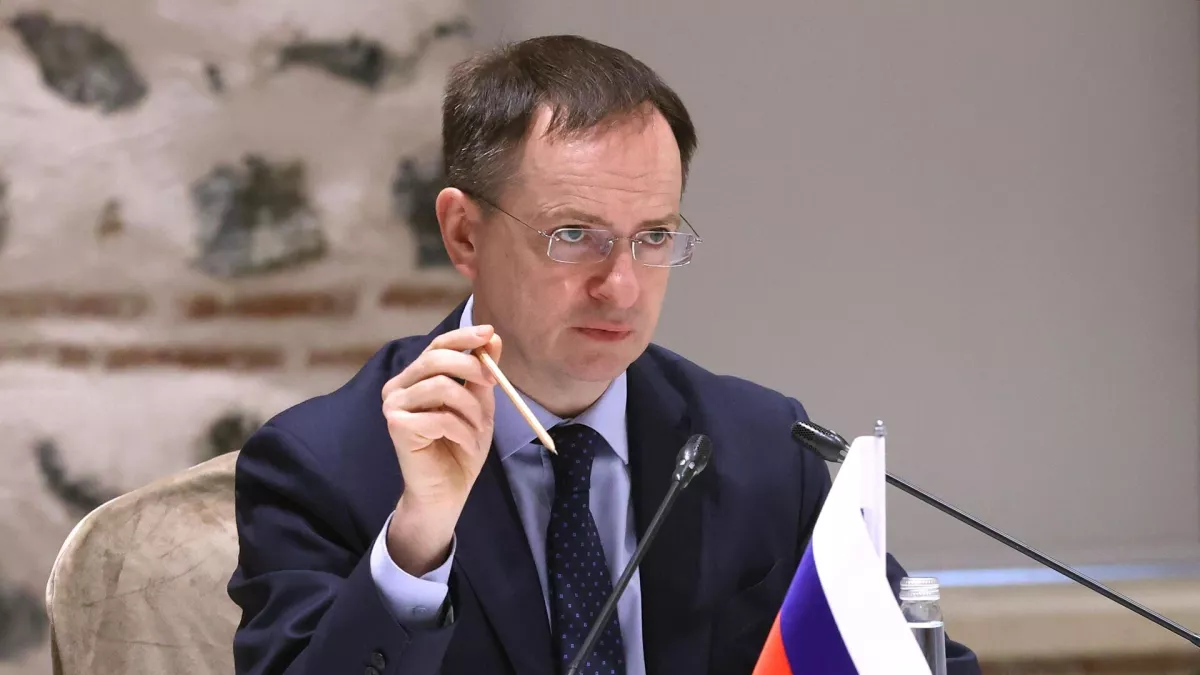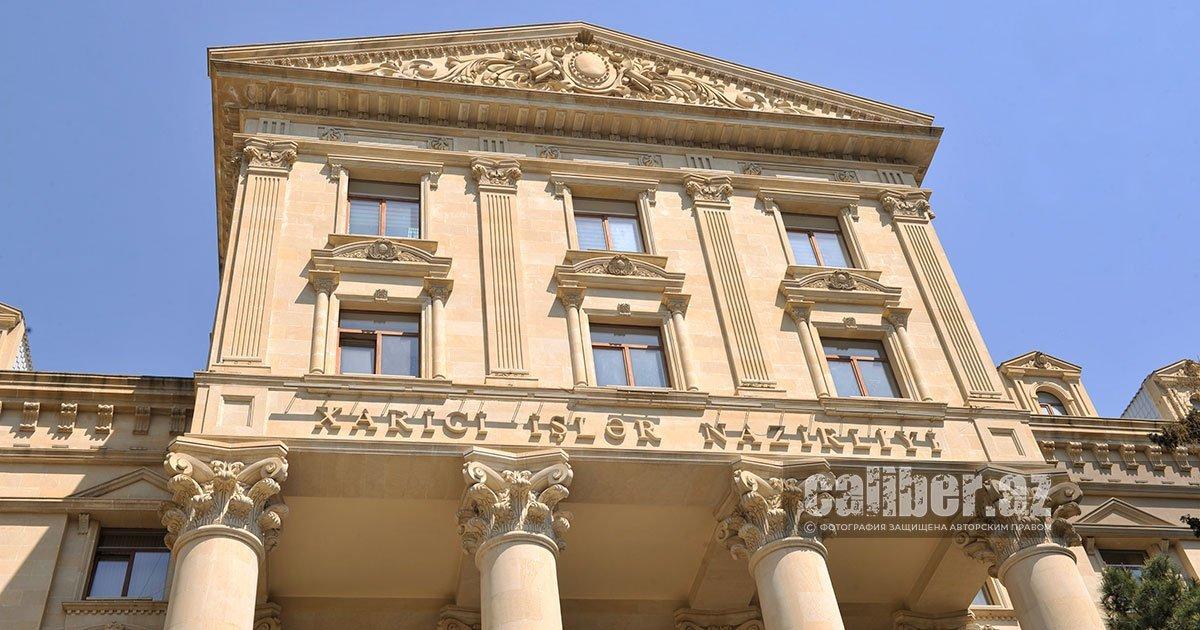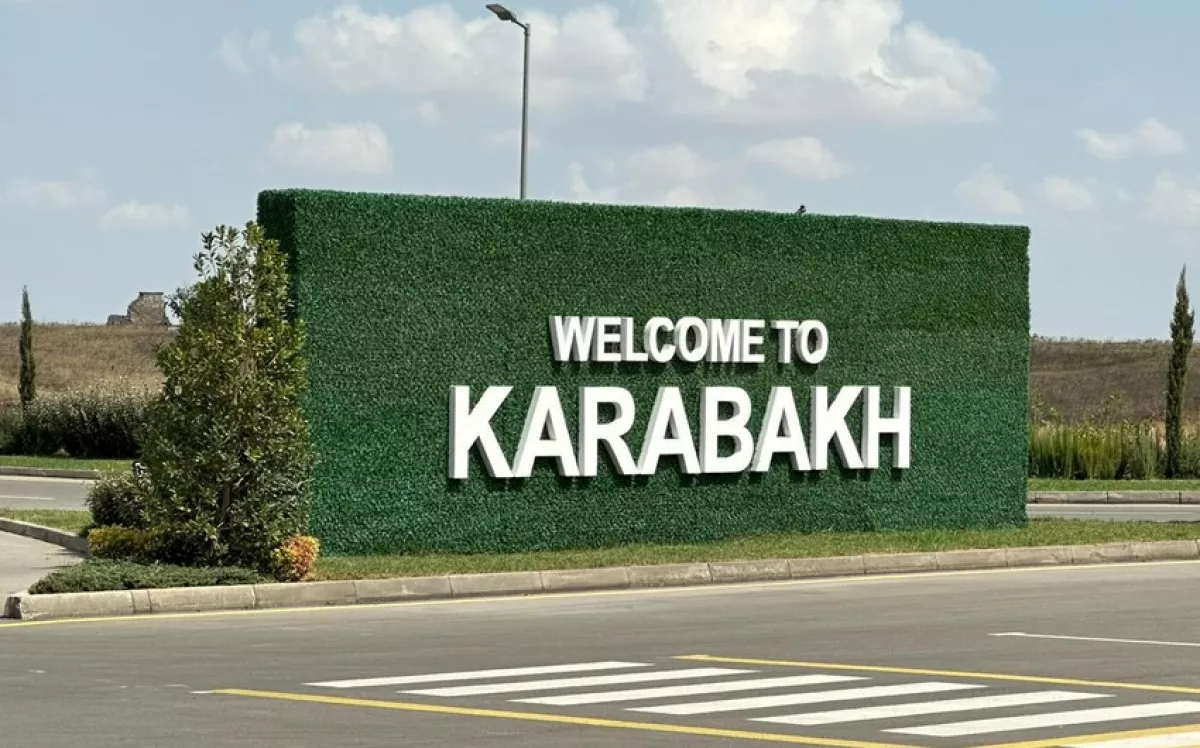Karabakh is not a "precedent," but a lesson Response to Russian presidential aide
When history begins to be manipulated, it always ends badly—both for history itself and for the state whose official representatives resort to such tactics. The recent statements by the aide to the President of the Russian Federation, Vladimir Medinsky, in an interview with Russia Today, in which he calls Karabakh a "disputed region" and compares it to Ukraine, not only call into question the competence of the interviewee but also reveal Moscow’s true motives regarding conflicts in the post-Soviet space.
Medinsky, it should be reminded, has not been involved in scandals related to the distortion of history for the first time. While serving as Minister of Culture, he was repeatedly criticised for falsifying facts, promoting conspiracy theories, and openly propagandistic interpretations of the past.
In 2017, a scandal erupted over Medinsky’s doctoral dissertation, titled “Problems of Objectivity in the Coverage of Russian History from the Second Half of the 15th to the 17th Century.” Several historians considered the minister’s work unscientific, found many errors and inaccuracies in it, and demanded that Medinsky be stripped of his academic degree.
The Expert Council of the Higher Attestation Commission (HAC) recommended that the HAC Praesidium revoke Medinsky’s doctorate. “It was noted that the candidate lacks the basic professional skills of a historian,” the expert council declared at the time. However, the HAC Praesidium did not revoke the minister’s degree. After this, Doctor of Historical Sciences Oleg Budnitsky resigned from the expert council.
In 2017, the Higher Attestation Commission received over 20 petitions requesting that he be stripped of his academic degree, while the expert community of historians outright accused him of plagiarism. He also found himself at the centre of a scandal surrounding his book “The War. Myths of the USSR”, which was deemed ideologically biased and manipulative—even by many Russian scholars. And now this same person has taken it upon himself to speak on such delicate and sensitive matters as Karabakh and territorial conflicts.

Now to the substance. What exactly did Medinsky say in his RT interview? The Russian presidential aide stated: “If the Russian-Ukrainian conflict is frozen along the front line without a peace agreement, then—well, you know, there was this disputed region between Armenia and Azerbaijan, Karabakh—it will turn into a huge Karabakh. At some point, Ukraine, together with NATO and its allies, will join NATO, try to take it back, and that will be the end of the planet—a nuclear war.”
This logic is impossible to follow without inner dissonance: drawing a parallel between the aggression of one country against a sovereign neighbour and the restoration of territorial integrity by another is either political blindness or outright cynicism.

As the official representative of the Azerbaijani Ministry of Foreign Affairs, Aykhan Hajizada, stated, “Karabakh has never been a disputed territory.” It is an internationally recognised part of Azerbaijan—a fact repeatedly affirmed by both Russia and the entire international community. Moreover, this status is enshrined in a number of key international documents. In particular, as early as 1993, the UN Security Council adopted four consecutive resolutions—Nos. 822, 853, 874, and 884—demanding the immediate, complete, and unconditional withdrawal of Armenian armed forces from the occupied territories of Azerbaijan. These resolutions clearly reaffirmed the territorial integrity of the country and were supported by all permanent members of the Security Council, including Russia.
This position has been consistently reaffirmed in documents from the United Nations, the Organisation of Islamic Cooperation, the Non-Aligned Movement, GUAM, the Organisation of Turkic States, PACE, and also in a number of European Parliament resolutions—all of which are based on the principle that Karabakh is not a "disputed territory" but an integral part of the Republic of Azerbaijan.
If the Russian presidential aide now either “doesn’t know” this or is deliberately ignoring these legally binding and diplomatically established positions, then this raises a serious question: are we witnessing incompetence, revisionism, or a deliberate distortion of reality?
The statement from Azerbaijani Foreign Ministry spokesperson Aykhan Hajizada is crystal clear: “We would like to remind that Karabakh is an ancient and integral part of Azerbaijan. Russia itself has recognized and continues to recognize Karabakh as part of Azerbaijan’s territory. The concerning issue is that the Assistant to the President of a country that was a co-chair of the Minsk Group either does not understand or does not wish to understand his country’s position on this matter.”
Further comparisons between the Russia–Ukraine war and the situation in Karabakh, as the diplomat noted, are inappropriate and misleading. Azerbaijan did not violate anyone's territorial integrity—it restored its own, lawfully and in full accordance with international law.
It is also worth recalling the historical truth that Medinsky so carefully avoids. The Karabakh conflict is the result of decades of occupation of Azerbaijani territory, supported both directly and indirectly by external powers—including Russia. It was Moscow that supplied Armenian separatists with weapons, and it was Russian peacekeepers who played an ambiguous role in the region even after the 44-day war. The policy of “divide and rule” is a well-known hallmark of Russian geostrategy, and the Karabakh case fit this approach perfectly.

When Medinsky speaks of a “huge Karabakh,” he perhaps does not realise that he is revealing a deeply imperial view of the post-Soviet space: for people like him, the nations of the South Caucasus and Central Asia are pawns whose fate can be used for rhetorical exercises and fear-mongering analogies.
The problem, however, is that the 21st century is not an age of great-power surrealism. Even in Russia, it should now be clear that such rhetoric does not strengthen trust between states—it accelerates its erosion.
If Medinsky’s goal was to discredit not only himself but also Russia’s position in the eyes of the region’s countries, then congratulations are in order—he has succeeded remarkably well.
But there is another important point. Medinsky’s remarks directly contradict the official position of Russian diplomacy, which has consistently reaffirmed Azerbaijan’s territorial integrity. In doing so, he not only discredits his own country, but also exposes the intellectual and moral bankruptcy of those who claim to be “enlighteners of history.”
These rhetorical contortions, in which Karabakh is suddenly turned into a tool of intimidation, are not mere political carelessness. They are a symptom—a symptom of a tired imperial logic incapable of accepting a simple truth: small nations have the right to a big truth.
And Azerbaijan has stood for its truth—on the battlefield during the Patriotic War of 2020, and again in 2023, when precise and effective anti-terror operations were carried out. All of this took place within its internationally recognised borders. Unlike those who, under the banners of “historical justice,” launch full-scale wars and provoke global conflicts.
Perhaps it is time to understand that the era when sovereignty could be decided in Moscow is over. Those who fail to grasp this are swiftly and mercilessly cast aside by history. And indeed, it is precisely such “statements” that have contributed to the sharp deterioration of trust between the two countries.
And so, a final word: Mr. Medinsky, perhaps it is time for you to return to what you truly excel at—mythmaking and crafting ideological fairy tales. Leave history to the professionals, and foreign policy to those who understand the value of words. Because, as experience shows, careless mouths often do the greatest harm—to themselves and to others.








